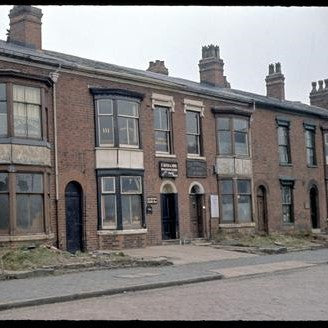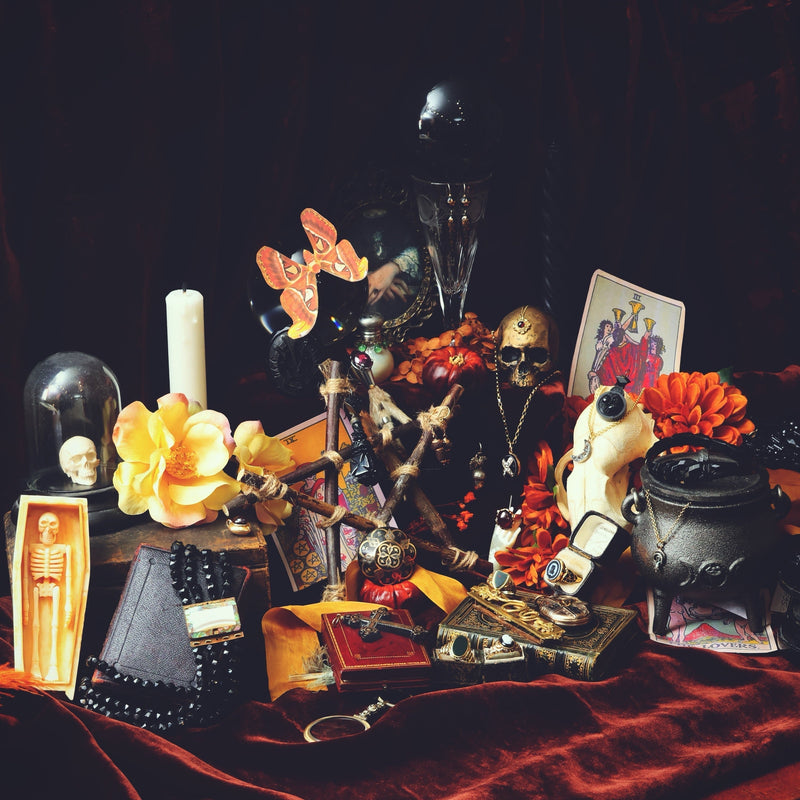
 For more than two centuries Birmingham has been central to the jewellery trade in England. As dealers in antique jewellery, our visit to The Jewellery Quarter of Birmingham was long overdue. Many of the Victorian pieces we sell originated in the jewellery quarter of Birmingham, as did the beautiful silk-lined boxes we handle every day. There were once great numbers of businesses involved in producing all types of jewellery, silver wares, boxes, and even such skills as hair weaving for mourning jewellery could be found there. The Birmingham Assay Office was founded in 1773, in recognition of the great number of jewellers working in the area we now know as the Jewellery Quarter. At that time silversmithing was booming in Birmingham and the city itself was playing a leading role in the Industrial Revolution. The area grew rapidly and came to cover a large area, becoming home to thousands of workers, who lived in the area and worked from its hundreds of small workshops. It even had its own school, church and eventually cemetery, which opened in 1835.
For more than two centuries Birmingham has been central to the jewellery trade in England. As dealers in antique jewellery, our visit to The Jewellery Quarter of Birmingham was long overdue. Many of the Victorian pieces we sell originated in the jewellery quarter of Birmingham, as did the beautiful silk-lined boxes we handle every day. There were once great numbers of businesses involved in producing all types of jewellery, silver wares, boxes, and even such skills as hair weaving for mourning jewellery could be found there. The Birmingham Assay Office was founded in 1773, in recognition of the great number of jewellers working in the area we now know as the Jewellery Quarter. At that time silversmithing was booming in Birmingham and the city itself was playing a leading role in the Industrial Revolution. The area grew rapidly and came to cover a large area, becoming home to thousands of workers, who lived in the area and worked from its hundreds of small workshops. It even had its own school, church and eventually cemetery, which opened in 1835.
The price of raw gold dropped from the 1880's onwards, and this fact added to the new processes which were being championed in Birmingham such as electroplating (invented by George Elkington of Newhall Street, Birmingham) and the first man-made plastic, Parkesine (invented by Alexander Parkes in 1862), saw rapid growth of the jewellery quarter. By 1880 there were nearly 700 workshops, but this boom period was short-lived as by 1885 as there was a downturn in business caused by the nationwide depression. At its peak in the early 1900's, when the Jewellery Quarter in Birmingham employed over 30,000 people, the larger factories producing great numbers of gold seals and watch chains, silver buckles, brooches and combs, but the industry declined in the twentieth century (although WWl created opportunities for making silver buttons etc. for soldiers uniforms), and since WW11 many of the factories and workshops have been empty.

On our visit to The Quarter we were saddened to see that nowadays, although this area of Birmingham is still home to many producers and small shops, it is quite run down and the streets are lined with empty factories and workshops which have long since closed their doors. The famous names such as Fattorini, Unity, and The Victoria Works still proudly announce their premises, but it is quite a sorrowful experience to imagine the decline of the businesses and how this would have affected those working in them. Somewhat ghostly and atmospheric, gorgeous Victorian gothic architecture adorns these factories with their empty windows, and half demolished workshops remain as poignant reminders of the golden days when they would have been bustling hives of industry.

The most wonderful Victorian cemetery sits prominently at the centre, full of finely inscribed eminent graves, the last resting place to many a well-to-do Victorian jeweller. It's gracefully curved catacombs lined with the tombs of Birmingham great and good.
If you've an interest in either jewellery or history, the Jewellery Quarter in Birmingham is definitely worth a visit, and The Museum of The Jewellery Quarter is an interesting place to see, set as it is on the site of the workshops of 'Smith and Pepper' on Vyse Street, who closed up in 1981 leaving an intact workshop.



